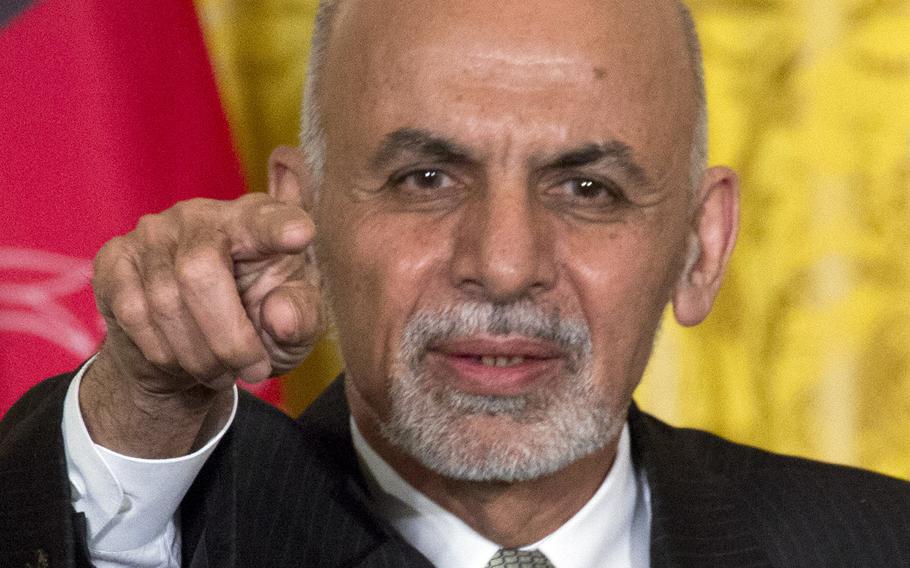
President Ashraf Ghani of Afghanistan, during a White House press conference in March, 2015. (Joe Gromelski/Stars and Stripes)
KABUL, Afghanistan — The first official talks between Afghan officials and a Taliban delegation concluded early Wednesday with both sides agreeing to meet again after the holy month of Ramadan, officials said.
The talks are intended to explore opening a formal peace process to end the fighting between the two sides, said an Afghan government official who asked not to be named because of the issue’s sensitivity.
The one-day meeting in Pakistan between the warring sides opened late Tuesday. It came after a series of informal contacts between Afghan representatives and members of the guerrilla group in Norway, Qatar and China.
The Afghan delegation was led by Deputy Foreign Minister Hekmat Khalil Karzai. The Taliban were represented by three senior leadership figures, including former Health Minister Mullah Abbas Stanikzai. Both men also participated in exploratory meetings in Oslo last month.
Participants “agreed to continue talks (after Ramadan) to create an environment conducive for peace and reconciliation process,” said a statement released by Pakistan’s Foreign Ministry, which hosted the talks in the hill resort of Murree near the capital of Islamabad. This year, Ramadan ends on July 16.
The statement said participants exchanged views on ways to bring peace and reconciliation and agreed that “each side would approach the process in sincerity and with full commitment.”
In Kabul, a Foreign Ministry statement said the Afghan government “considers it as the first step toward reaching peace (and) hopes that the negotiations begin a process to avert further bloodshed of innocent Afghans.”
There was no immediate public reaction from the Taliban. In the past, the group’s spokesman has denied that its leadership has authorized any official contacts with the government in Kabul.
Diplomats from the United States and China attended the Murree meeting as observers, officials said.
The Taliban’s annual summer offensive is currently in full swing, with infantry raids on government outposts in many parts of the country and a series of bomb attacks in Kabul, including one against the country’s parliament.
Since assuming office last September, Afghan President Ashraf Ghani has been urging the insurgents to end the war and join the political process. But the Taliban have repeatedly refused, saying they will continue to fight until all foreign troops leave the country.
Ghani’s 10-month administration has significantly improved relations with neighboring Pakistan, which is believed to have maintained close contacts with the Taliban leadership ever since U.S. military strikes ousted the militant group’s government in 2001.
The U.S.-led NATO coalition still has about 13,000 troops in the country, the vast majority of them Americans. Most are tasked with training and advising the Afghan army and police. They are scheduled to remain here until the end of 2016.
Zubair Babakarkhail contributed to this report.